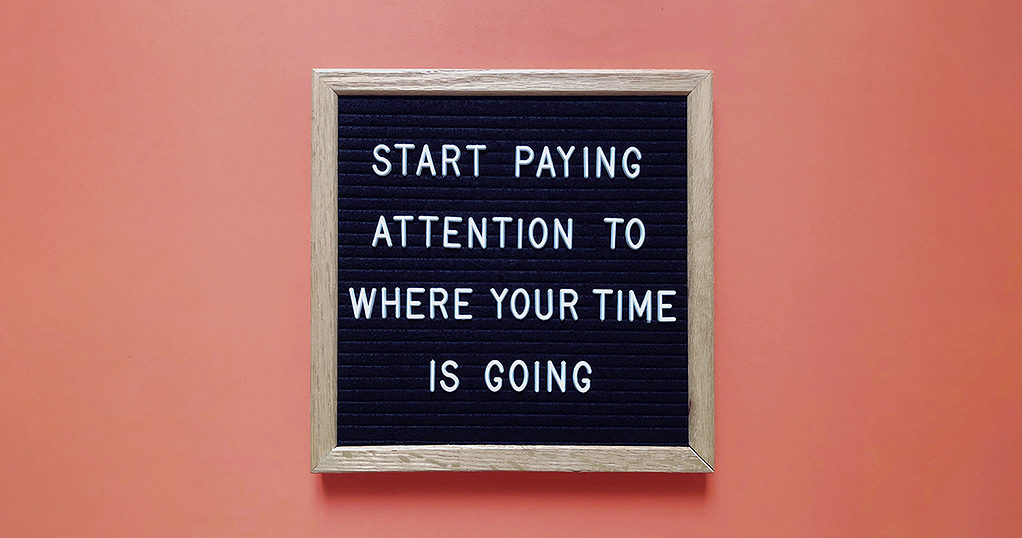It is no surprise that more and more people are looking into moving away from employment and starting their own businesses. Taking their current skills and marketing themselves as a freelancer or learning new skills to expand their horizons and starting with small freelance jobs to get a feeling for the job. Whatever the reason you want to look into it, the lifestyle is different from an employed life, and there are some things you need to expect and even plan for before you become a freelancer.
We will look at some of those differences and how you can plan to make the transition. But first, we need to understand what we call a freelancer.
A freelancer is a self-employed individual who offers services or products to clients on a project or contract basis rather than being employed by a single employer on a long-term basis. Freelancers are often considered part of the “gig economy” and can work in various industries and fields.
Become a Freelancer – What is the Lifestyle?
A freelancer lifestyle is something that can feel very different, even strange, to someone who has only ever worked for someone else before. While you may not always experience all of the points on the following list, a freelancing lifestyle often consists of the following:
Self-employment: Of course, the primary reason that many people want to become freelancers in the first place is that freelancers are their own bosses. However, with that, they are responsible for finding and securing their work, including everything that surrounds the job, such as paperwork, finances, equipment procurement, etc.
- Flexibility: A very close second reason people want to live a freelancer lifestyle is that they can choose when and where they work and the types of projects they take on.
- Variety: Not always something that every freelancer wants, but it is sometimes unavoidable, is that they will often work on various projects for different clients. However, whether that variety is something you want or not, it certainly keeps the job exciting and challenging.
- Independence: Freelancers are independent and make their own decisions about managing their business and work. That independence is a massive bonus to freelancing; it lets you change your schedule to fit things like holidays, family events, etc., without booking time off work.
That all sounds very appealing. However, the truth is we have only covered the positive aspects of working as a freelancer so far. While we could gloss over the negatives, that will not help you understand what you need to expect in a freelancing career. So, please remember the following three points and plan to work around them or be as ready as possible.
- Entrepreneurship: Freelancers must possess a sense of entrepreneurship; they must be able to market themselves, network, and manage their finances. There are still options available to all freelancers, though. For example, you can hire marketers, financial advisors, accountants, Virtual Assistants, or any other professional you need – remember to budget for them, though.
- Uncertainty: Freelancers are responsible for finding their clients, which can be unpredictable and may lead to uncertainty regarding income and work. Unfortunately, there is no simple fix for freelancing unpredictability. Still, there are things that you can do to reduce it, such as marketing your services on multiple platforms and trying to get more work requests than you can handle.
- Social isolation: Freelancers may experience social isolation as they are not part of a traditional office environment and may interact differently with colleagues. The isolation, or risk of it, is something that you need to be very aware of, and try to make regular plans with friends and family to try and combat it.
Overall, a freelancer lifestyle can be enriching, offering flexibility, variety, and independence, but it also involves taking on a significant amount of risk and responsibility.
Things You Need to Know and Do When Preparing to Become a Freelancer
In the following sections, we will examine everything you need to consider when preparing for the leap into freelancing.
Setting Up Your Business
Of course, setting up your business is the first thing you need to do as a freelancer. However, it is often best to start sorting this aspect of your new career before making the jump from employment, as it gives you the time to sort out as many of the issues as you can before taking client work on. Therefore, in the following sections, we will explain some things to consider when setting up your freelancing business.
Choosing a Business Structure
Choosing the proper business structure for freelancing is a crucial decision to make. Depending on your country of residence, different legal entities offer varying liability protection and tax benefits. These include sole proprietorships, limited companies, partnerships, and cooperatives. It’s essential to research each type before deciding, as there can be significant differences in taxation and ease of setup. Additionally, you should consult an accountant or lawyer about which option best suits your needs.
Registering your Business and Obtaining Licenses and Permits
When preparing to become a freelancer, it is vital to ensure that you have the correct licenses and permits for the job you will be doing. Depending on your country of residence, different legal entities may need to be registered, and certain businesses may also require licenses and permits from local authorities to operate legally. Therefore, you must research any relevant regulations or requirements before starting up as a freelancer to ensure everything is in place before beginning work.
Setting up a Business Bank Account
Setting up a business bank account is an essential step for freelancers. A business bank account provides several benefits over a personal account, such as increased security and privacy, access to financial services tailored to businesses, and separate tracking of income and expenses. In addition, having that dedicated business bank account can help you maintain better records for tax purposes.
With the correct setup in place, it will be easier to ensure your finances are organized and up-to-date.
Understanding Tax Requirements
Understanding the tax requirements of your jurisdiction is an essential step for freelancers. Researching and understanding local taxes, filing deadlines, and other related regulations are imperative to ensure compliance with all relevant laws. Depending on your country of residence, different types of taxes apply to freelancers, such as income tax, self-employment tax, value-added tax (VAT), or payroll taxes.
Additionally, researching any available deductions or credits can minimize your overall tax liability. Moreover, if you plan on hiring employees or subcontractors, you must familiarize yourself with employment law and ensure all necessary documents are filed correctly. By properly understanding the applicable legal requirements upfront, you can save a lot of headaches down the line.
You may not be planning to hire anyone to help you at first, so there may not be a lot of reasoning behind finding and learning the information. However, we suggest that you find out where the information is and keep it for future reference. It is always better to find the information before you need it and while you have time than to try and find it in a rush.
Consulting with a Lawyer or Accountant
Before taking the plunge and becoming a freelancer, you must ensure you have all your legal and financial ducks in a row. Consulting with a lawyer or accountant can ensure that you are prepared for the transition by guiding you through setting up your business structure, registering it correctly, obtaining necessary licenses and permits, understanding tax requirements, and more. This step will give you peace of mind knowing that everything has been taken care of properly so that you can focus on growing your freelance business without worrying about any potential issues down the line.
Obtaining Insurance
Before you start trading, obtaining the correct type of insurance for your business is essential. Insurance can protect you from potential risks, including financial loss, property damage, and personal liability. Depending on your industry and the services you offer, different types of insurance are available to cover any potential losses or penalties you may face while freelancing (of course, we hope there won’t be any!)
For example, professional indemnity and public liability insurance can protect against claims made by clients for negligence or breach of contract. Additionally, income protection insurance can help replace lost income due to illness or injury. Therefore, it is vital to research all applicable policies and find the one that best suits your needs before starting up as a freelancer so that you know that all bases are covered should anything unexpected occur down the line.
Hopefully, your accountant or lawyer from the previous step has helped you here.
Setting up a Website and an Online Presence
Having a website and an online presence is essential for freelance businesses. In today’s digital age, an online presence allows freelancers to showcase their services and cost-effectively reach potential clients. With the correct setup, you can create an attractive website that promotes your business and helps you stand out from the competition.
Additionally, establishing yourself on social media platforms such as LinkedIn, Twitter, and Instagram will help you build relationships with potential customers by showcasing your work and engaging with them directly with a personal touch. Furthermore, social media is a great way to provide customers and potential clients with a way to get in touch with you, leave reviews, and more. A solid online presence also enables you to monitor industry trends to stay ahead of the curve regarding client needs or technological changes.
Overall, creating a professional website and cultivating an engaged audience through social media is key for any successful freelancer looking to grow their business.
Create a Portfolio of Your Work
Creating a freelancing portfolio seems obvious. However, not everyone makes an easy way to showcase their best work, and they can be left short when clients ask them to see their previous jobs.
A portfolio allows you to showcase your skills and talents and demonstrate that you can do quality work, making it easier for potential clients to trust your abilities before hiring you.
Start working on personal projects before taking on freelance jobs to build a strong portfolio quickly and show off what you’re capable of doing. Personal projects also allow you to experiment with different techniques and styles without worrying about pleasing a client immediately.
By building up a solid portfolio beforehand, potential customers get an idea of the kind of services they can expect when they hire you and confidence that their project is in safe hands – something that is often worth more than money!
Investing in Necessary Equipment or Software
Investing in the best equipment and software you can afford when you begin freelancing is essential. However, this does not mean you must buy the most expensive products. For example, a writer will not need the newest gaming laptop available; even an android tablet and Bluetooth keyboard will work until you have the money to upgrade.
There are plenty of affordable options available which will still help your business succeed. Investing in quality tools and technology allows you to work more efficiently and effectively, saving time and money in the long run. It also helps ensure that your clients get a high-quality product or service from start to finish.
Investing in necessary equipment or software before starting as a freelancer allows you to focus on growing your business without worrying about potential issues.
Managing Finances
Managing your finances as a freelancer is one of the most important tasks when starting. It can be overwhelming, but with the proper knowledge and tools, it doesn’t have to be.
Understanding how much money you make and spend each month helps you make informed decisions about where to invest your money and budget for future expenses. Additionally, an organized system for tracking income and expenses allows you to monitor financial performance and address any potential issues efficiently.
Finally, setting up a savings account ensures that funds are set aside for long-term goals such as buying property or higher education. By taking these steps before beginning your freelance journey, you’ll be financially well-prepared and ready to tackle any challenges that come your way!
Managing Expenses and Taxes
Managing your expenses and taxes is an integral part of managing your finances. Keeping track of income and costs can help you determine how much to set aside for taxes each year and create a budget that works for you.
Additionally, understanding the tax deductions available to freelancers can help reduce your overall tax burden, providing you record them accurately. By taking the time to understand these financial management strategies, you can ensure that your finances remain in order as you continue working independently.
Building a Financial Safety Net
Building yourself a financial safety net as soon as possible is essential. That means setting aside money for taxes, emergencies, and other expenses. By saving a portion of your income each month and investing it wisely, you can create an additional source of income that will help protect you during lean times or if something unexpected happens.
Additionally, having multiple income streams can give you more flexibility in how much work you take on at any given time. With careful planning and attention to detail, building up your financial safety net is one of the best investments you can make in your freelance career.
Invoicing and Receiving Payments
Having an efficient system for invoicing and receiving payments ensures that you are paid on time, which is pertinent if you work with clients from different countries, as they may require specific payment methods or other information.
To make this process easier, you should create a standard invoice template that includes all necessary information, such as your name, contact details, services provided, and payment terms.
Additionally, setting up multiple payment options, such as PayPal or bank transfer, can help ensure that clients can pay quickly and easily, regardless of location. By setting up an effective invoicing method and ways to accept payments from international customers, you can make sure that your freelance business runs smoothly.
Keep Accurate Records of Your Financial Transactions
Accurate financial records are essential for any successful freelancer. That includes tracking income, expenses, and taxes to ensure you remain financially stable. Accurate financial records can also help reduce your overall tax burden by allowing you to take advantage of deductions available to freelancers.
Creating a Pricing Strategy
A solid pricing strategy is essential for any successful freelancer. When you are asked to provide a quick quote on a project, your answers must be clear, concise, and accurate, not to mention quick (people rarely have days to wait to find out how much something will cost them). The best way to ensure this is to have a well-defined pricing structure, including an hourly or day rate and any additional fees or discounts you offer.
Having a set pricing structure helps ensure that clients understand the cost of your services and can help differentiate you from competitors charging lower rates for similar work. It also allows you to remain competitive yet profitable, charging rates that accurately reflect the value of your work.
Finding and Securing Work
Finding and securing work as a freelancer can be daunting, but it doesn’t have to be. With the right strategies, you can find a steady stream of clients and projects to help you grow your freelance business.
One of the most effective ways to do this is by applying for jobs on job boards and freelancing marketplaces (such as the one you are on now, TopIQs). These websites are designed to connect freelancers with potential employers who may need their services. By creating an appealing profile, showcasing your skills and portfolio, and submitting applications quickly when new opportunities arise, you’ll increase your chances of being hired for single projects or longer-term jobs.
Additionally, many job boards allow you to set up alerts so that you’re notified whenever new postings match your criteria – meaning no more manually searching through hundreds of listings!
Finally, networking with other professionals in similar fields is also an excellent way to secure work as a freelancer. By building relationships with like-minded people within the industry, you can tap into insider knowledge about upcoming projects or special offers that could benefit both sides.
Marketing and Networking
Marketing yourself and your skills is an essential part of being a successful freelancer. One of the most effective ways to do this is by networking with other professionals in similar fields. By meeting new people, attending industry events, and joining online communities, you can build relationships with other freelancers who can refer you for potential jobs or provide you with advice.
Creating social media profiles for your freelance business is another excellent way to market yourself. Platforms such as LinkedIn, Twitter, and Instagram can help spread the word about your services by connecting you with potential clients and other like-minded professionals. Additionally, having a website or blog where you showcase your portfolio and write content related to your field helps establish your credibility and gain more exposure.
Dealing with Uncertainty and Inconsistent Income
Freelancing can be an enriching career, but it also comes with unique challenges. One of the most significant issues freelancers face is uncertainty and inconsistent income. That presents a problem for those who rely on their freelance income to pay the bills or sustain their lifestyle. Fortunately, there are ways to manage this issue and ensure that you remain financially stable despite these obstacles.
One of the most effective strategies is to create a budget and stick to it. An accurate picture of your financial situation can help you anticipate and plan for unexpected expenses or income fluctuations. Additionally, building up an emergency fund with enough money saved up to cover at least three months’ worth of living expenses can help provide a buffer in case of unexpected financial hardship.
Finally, diversifying your income streams by taking on various projects can also ensure that you have a steady flow of income during lean times.
Handling Difficult Clients and Projects
Working as a freelancer can bring much joy and satisfaction, but it also comes with its unique challenges. One of the most common issues freelancers face is demanding clients and projects. That can be an incredibly daunting prospect for new freelancers who may not have had much experience in this area and could find themselves in over their heads.
Fortunately, several strategies can help freelancers successfully manage demanding clients and projects.
- The first step is clearly understanding what the client wants from the project. It is essential to ask questions and get clarifications up front so both parties fully understand the scope of work and expectations for the final product.
- Additionally, setting expectations and boundaries from the very beginning can help prevent clients from feeling like their requests are not being taken seriously or that you are incapable of completing the job.
- Finally, staying organized and communicating regularly with clients throughout the project can help ensure that any misunderstandings or conflicts are resolved quickly and efficiently.
While these three points are not always going to remove all possibilities of encountering difficult tasks or clients, they can certainly help reduce the risk. Creating a form and asking the clients to fill it out may be beneficial to help you understand what they expect and to help you manage your workflow to accommodate them.
Building a Client Base and Expanding it
Building a successful freelance business requires more than just having the right skills and expertise. It also requires actively seeking out clients and building relationships with them to secure long-term projects. While this can be daunting for new freelancers, it is essential for growing your business. Luckily, there are several strategies you can use to build and expand your client base.
Become a Freelancer – Manage Time and Stay Organized
Time management and organization are essential skills for freelancers to have if they want to be successful. Without these skills, it can be challenging to manage multiple projects and clients at once and ensure that all deadlines are met on time. Therefore, freelancers need to develop strategies that will help them stay organized and make the most of their time.
Setting Regular Working Hours
Finding your productive hours and establishing a consistent work schedule helps create structure in your day-to-day life and ensures that you are focused on your tasks when it’s time to work. This also allows you to plan breaks, meals, errands, and other activities around your set working hours.
Additionally, having regular working hours makes it easier for clients to know when they can expect responses from you during the course of a project. Establishing these boundaries will make it easier for both parties involved to ensure deadlines are met with minimal stress or disruption.
Setting Goals and Breaking Down Larger Projects
Setting goals and breaking down larger projects into manageable tasks are essential strategies for freelancers to master if they want to be successful. Clearly defined plans allow freelancers to focus on their objectives and measure progress over time. Additionally, breaking down larger projects into smaller, more achievable tasks can reduce overwhelm and provide a sense of accomplishment as each task is completed.
Using Tools to Keep Track of Deadlines and Appointments
Fortunately, various tools are available to help freelancers keep track of deadlines, appointments, and other tasks. From calendar apps to project management software, these tools can be invaluable in assisting freelancers in staying on top of their work and ensuring that all commitments are met on time.
Creating a Schedule for Yourself and Sticking to it
Creating a schedule for yourself and sticking to it is an essential skill that all freelancers must master if they want to be successful. Plans provide structure, help you stay organized, and ensure that deadlines are met on time. Additionally, having a set routine can help reduce stress by allowing you better to plan your day-to-day activities around your work hours. Establishing these boundaries makes it easier for both parties involved in the project to know when responses will be given during the course of the project.
Prioritizing your Tasks and Creating a to-do List
Prioritizing your tasks and creating a to-do list are essential skills for freelancers to master if they want to be successful. Knowing which tasks should take priority helps ensure that projects are completed on time while having a written record of the tasks you need to finish can help keep you organized and focused throughout the day.
Maintaining Work-Life Balance
Maintaining a healthy work-life balance is essential for freelancers if they want to be successful. Finding the right balance between work and personal life can help reduce stress, increase productivity, and ensure that deadlines are met on time. Additionally, having some downtime away from your projects allows you to recharge your batteries and return with fresh ideas and energy.
To maintain a healthy work-life balance as a freelancer, you must set boundaries between when you are working and when you aren’t. Additionally, setting goals and breaking down larger projects into smaller tasks can make them more manageable. Finally, using tools such as calendar apps or project management software can help keep track of deadlines so that commitments are not missed or forgotten about. Maintaining a good work-life balance as a freelancer is achievable with the right strategies in place!
Staying Motivated and Productive
Staying motivated and productive is a challenge for many of us, especially when we’re facing long-term projects or tasks that seem daunting. It can be hard to stay focused and energized when it feels like the end goal is too far away. But staying motivated and productive is key to achieving success in any endeavor. Fortunately, you can use simple strategies to stay on track and reach your goals.
By setting clear objectives with short-term milestones along the way, breaking down complex tasks into smaller pieces that are easier to manage, rewarding yourself for progress made, surrounding yourself with positive people who will encourage and motivate you, taking regular breaks throughout the day for physical activity or relaxation techniques such as meditation or yoga, setting achievable daily goals rather than trying to do everything at once – these are all effective ways of keeping yourself motivated and productive throughout your project or task.
Become a Freelancer by Finding a Community
For freelancers, finding a community of other like-minded individuals can be essential for success. Having a supportive network to rely on and turn to for advice is invaluable in this often isolating profession. By connecting with others who are in the same field, you can learn new skills, gain insights into your work and even get encouragement when times are tough.
Plus, having peers who understand the unique challenges that come with being an independent professional can help alleviate any feelings of loneliness or isolation you may experience during the course of your career. Finding a community of other freelancers doesn’t have to be complicated – there are plenty of ways to make connections online or in person. Whether joining local meetups or participating in virtual forums and discussion groups, getting connected today could mean a world of difference tomorrow.
Navigating the Challenges of Freelancing
Navigating the challenges of freelancing can seem daunting, but with a few key strategies and habits in place, it is possible to succeed as an independent professional. Freelancers must be resilient and able to adapt quickly to changing circumstances while also being organized and disciplined enough to manage their own workloads.
Additionally, they need to have excellent communication skills to maintain relationships with clients and other professionals. Finally, having a supportive network of peers who understand the unique difficulties that come with freelancing is essential for long-term success. With these elements in place, any freelancer can find success despite the obstacles they may face along the way.
Become a Freelancer with Entrepreneurship and Self-Management
Entrepreneurship and self-management are two skills that are essential for freelancers to succeed. Entrepreneurship involves having the vision, drive, and determination to create something from nothing, while self-management is about taking responsibility for your own success by setting goals, managing time efficiently, and effectively delegating tasks.
Ultimately, this means being organized enough to plan ahead but also flexible enough to respond quickly when needed. Additionally, it requires having a solid understanding of financials to make informed decisions about investments or other business matters. With these skills in place, any freelancer can have the confidence necessary for long-term success!
Prioritizing Self-Care and Mental Health
To be successful in any field, you should prioritize self-care and mental health. This means taking the time to take care of your physical and emotional well-being, as these are both essential for a healthy life.
Self-care can involve anything from getting enough sleep, eating a balanced diet, engaging in regular exercise, or simply taking some time out of each day to relax and unwind. It also includes ensuring you get enough mental breaks by doing activities such as reading books or listening to music that make you happy.
Mental health should also be taken seriously; if you’re feeling overwhelmed or anxious about work or life, don’t hesitate to seek help from friends, family members, or professional counselors who can provide guidance and support. By paying attention to your needs first before diving into work daily, you will have the energy and focus necessary for success.
Social Isolation
Social isolation is a growing problem for freelancers that can seriously affect their mental and physical health. Working alone makes it easy to become disconnected from friends and family, lose motivation, and neglect self-care. As such, it’s important to make an effort to stay connected with others to avoid feelings of loneliness and depression. This may include scheduling regular video calls with friends or family members, joining online communities related to your field of work or interests, attending virtual events, or even simply taking the time each day to reach out via text or email.
Actively making an effort to socialize despite being physically separated from loved ones during this challenging time period can help reduce the dangers of social isolation while also providing much-needed support when times get tough.
Finding a Way to Cope with Stress and Burnout
Any freelancer must find a way to cope with stress and burnout. Working in an unpredictable environment can lead to feelings of anxiety, exhaustion, and even depression if left unchecked.
To prevent this from happening, you should create healthy habits that will help keep you focused and motivated while giving yourself time away from work when needed. This could include scheduling regular breaks throughout the day or setting aside specific days each week to focus on self-care activities like yoga or meditation.
Additionally, having support systems such as friends or family members who understand your lifestyle can be invaluable in times of distress. With these strategies in place, any freelancer can find effective ways to manage their stress levels to stay productive without sacrificing their mental health!
Conclusion
While this article may be a lot to take in, making the process of getting started as a freelancer seem daunting, once you have the basic skills and knowledge, it is easy to continue.
One of the most valuable pieces of advice that we can give you is to start looking into the lifestyle and process before you make any commitments to leaving employment. That way, even if it takes you a long time to work out a plan, you do not have to rush.
Freelancing is a very rewarding career, and it can (and often does) provide you with a completely different sense of life. You will have more time for family and friends, with more flexibility to do things with them that employed people often miss out on.
If you want to see what sort of thing you can start selling to get your foot in the door, take a look at the TopIQs marketplace.











